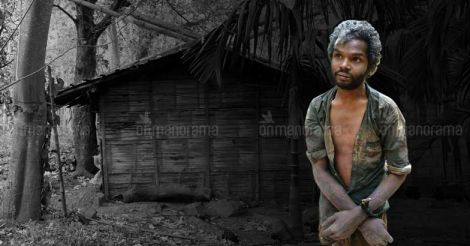Kochi: The death of tribal youth Madhu, who was killed by a mob accusing him of theft in Attappadi, could not be linked to poverty or starvation, the Kerala government has told the High Court.
Terming it an isolated incident that brought forth the society’s apathy and intolerance, the government submitted that no religious or political colouration could be ascribed to the incident.
Madhu was forced to fend for himself after being abandoned by the family due to his mental illness. It led to situation where there was nobody to take care of him. Madhu’s mother and the other family members were employed and were beneficiaries of various tribal welfare schemes. They had sources of income to lead a life of dignity, the government said.
His mother Malli and a sister were anganwadi workers. One of his brother-in-laws was a farmer while the other was a government employee. The family had been receiving 35 kgs of rice as their monthly free quota of food grains being supplied through the civil supplies department, the government explained.
The victim had been enrolled in a healthcare programme initiated by the Scheduled Tribe Development Department and had availed treatment for mental illness in the period between 2012 and 2014. However, he discontinued treatment at the Government Tribal Speciality Hospital in Kottathara, near Attappadi, thereafter, the court was told.
A special team headed by the Thrissur Range IG investigated the case and arrested sixteen persons. They are in judicial custody now, it added.
The affidavit was filed by Scheduled Tribes Development Department director P Pugazhendi in response to a suo motu case registered by the High Court.
Special benches
The affidavit further stated that special benches were set up at all district courts to adjudicate and speedily dispose of cases pertaining to atrocities against members of tribal communities. The government has taken steps to ensure compensation to victims apart from introducing various rehabilitation and free legal services schemes. Witnesses appearing before the court will be paid travel allowance. In Wayanad, which has the largest tribal population in the state, a special mobile police squad has been formed.
The government-sponsored tribal welfare schemes lay emphasis on educational empowerment as well as sustainable development of indigenous people. Various housing, skill development, employment generation and food security schemes have been implemented.
What the affidavit said
'Oorukoottams’, the traditional decision-making bodies, ensure empowerment of tribal communities in general and women in particular. Special coaching programmes are introduced to help tribal students improve their communication skills and prepare them for competitive examinations. Community kitchens have been established in tribal areas grappling with inadequate food availability and malnutrition.
In addition to this, mobile medical units and de-addiction centres have also been set up in these places. Various vocational training courses are being offered to the tribal students through the Kerala Institute for Research, Training and Development of Scheduled Castes and Scheduled Tribes (KIRTADS).
Attappadi has a model residential school. As many as 35 girl students from the tribal settlement have been enrolled in the newly introduced endowment scheme. Tribal candidates who have cleared the Teachers' Training (TTC) and Bachelor of Education (B.Ed) courses, will be appointed as teachers/teaching assistants to bring down the dropout rate among tribal children and help them overcome language barriers. There are as many as fifteen social study centres in and around Attappadi.
Due to the focussed interventions by the state in recent years, neonatal mortality in the region has dropped significantly - from 31 in 2013 to 14 in 2017. Cases of abortion were down from 77 to 24 while number of women who chose not to give birth in a hospital fell from 64 in 2013 to 5 in 2017, added the affidavit.
Read more: Latest Kerala news

























 Madhu was forced to fend for himself after being abandoned by the family due to his mental illness, the government said.
Madhu was forced to fend for himself after being abandoned by the family due to his mental illness, the government said.

